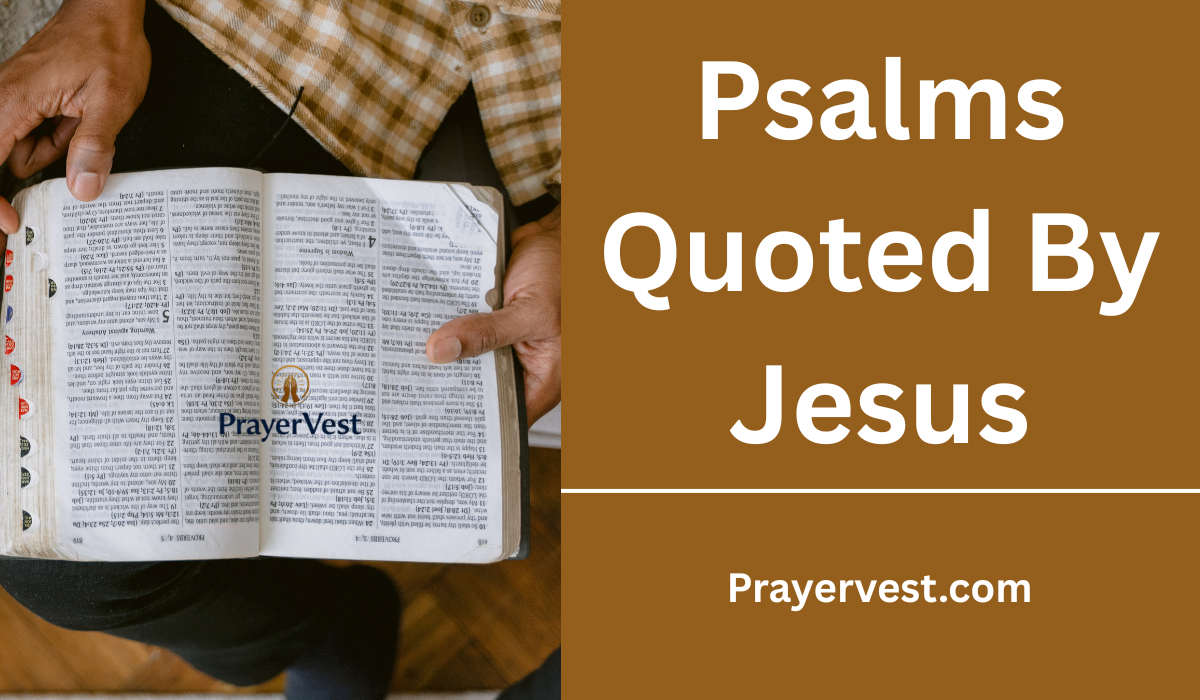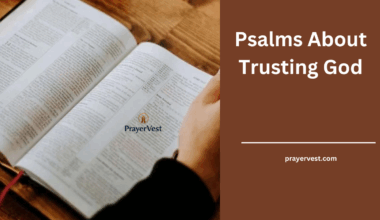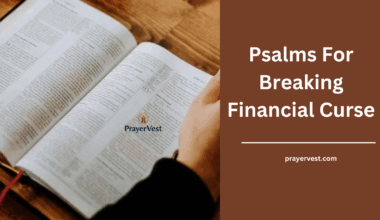In addition to being a book that Jesus Himself often quoted during His earthly mission, the Book of Psalms occupies a special place in the center of Scripture as a lyrical representation of heavenly truth and human feeling. Jesus’ reliance on the Psalms during crucial times shows how deeply ingrained these holy songs were in His thoughts and emotions.
The Psalms quoted by Jesus, their timeless significance and divine authority, are shown by the way they came effortlessly from His lips, whether He was teaching, praying, or suffering.
Jesus was drawing from the vast spiritual reservoir of Israel’s worship, prophecy, and mourning when He cited the Psalms, not just from a work of exquisite writing. In times of victory and particularly in suffering, like when He cried out, “My God, my God, why have you abandoned me?” on the cross. (Psalm 22:1)—Jesus showed that the Psalms were prophetic utterances that pointed to His own life and mission in addition to being timeless prayers. These verses provided both divine consolation amid suffering and the fulfillment of Scripture.


We can learn more about Jesus’ thoughts and feelings by examining the Psalms that he cited. We start to comprehend the nature of His connection with the Father, the purpose for which He came, and the spiritual language He employed to communicate with heaven and earth.
These Psalms encourage us to base our faith, worship, and prayers on the same principles that kept the Savior going. Not only are they the words of Christ, but they also become our words, reverberating through the ages to lead us through times of devotion, joy, and pain.
50 Most Powerful Psalms Quoted By Jesus (2026)
1. Psalm 22:1
“My God, my God, why have you forsaken me?”
Spoken by Jesus on the cross (Matthew 27:46), this haunting cry echoes David’s lament in Psalm 22. It captures the raw agony of abandonment and suffering, and yet it points to a deeper fulfillment of prophecy. Jesus, though fully divine, enters into the full spectrum of human despair and alienation, becoming the ultimate suffering servant. By quoting this psalm, He identifies not only with David’s pain but with the pain of all humanity and fulfills Scripture in the process.
Reflection
There are moments when God’s silence can feel like abandonment. But Psalm 22, when read in its entirety, turns from despair to triumph. Jesus’ use of this psalm reminds us that God is still present even in the darkest hour. When life feels most barren and heaven seems silent, we can cling to this truth: Christ knows our pain intimately. His cry is our comfort, proving that no moment of anguish is wasted and no suffering is unseen. Even in forsakenness, God is near.
2. Psalm 31:5
“Into your hands I commit my spirit.”
These were among the final words of Jesus on the cross (Luke 23:46). Quoting Psalm 31, He echoes David’s expression of total trust in God, even in the face of death. This statement is not one of defeat, but of surrender to divine care. Jesus’ final breath wasn’t a cry of hopelessness—it was the declaration of perfect faith and the fulfillment of God’s redemptive plan.
Reflection
In life and in death, trust is the posture of the faithful. When Jesus commits His spirit into God’s hands, He models the ultimate surrender—a yielding not out of fear, but of confidence in the Father’s will. This act invites us to entrust our lives, our pain, and our futures to the same sovereign care. In seasons of uncertainty or loss, we too can whisper this prayer, knowing that the hands we fall into are eternally good and infinitely strong.
3. Psalm 118:22-23
“The stone the builders rejected has become the cornerstone; the Lord has done this, and it is marvelous in our eyes.”
Jesus referenced this verse in Matthew 21:42 to confront the religious leaders and reveal the paradox of God’s plan: what man rejects, God exalts. The cornerstone, rejected by men, becomes the foundation of salvation. This psalm speaks of reversal, vindication, and divine sovereignty at work through Christ Himself—the rejected Messiah who becomes the foundation of God’s kingdom.
Reflection
Rejection is painful, but in God’s economy, it often precedes exaltation. Jesus’ citation of this psalm turns worldly wisdom upside down. What others discard, God honors. If you’ve ever felt cast aside, misunderstood, or dismissed, take heart: God may be positioning you for something greater. Like Jesus, we too may become part of something marvelous—built not by the favor of men, but by the favor of God.
4. Psalm 8:2
“From the lips of children and infants you have ordained praise.”
Jesus quoted this verse in Matthew 21:16 when the chief priests and scribes criticized the children in the temple shouting, “Hosanna to the Son of David.” By referencing Psalm 8, Jesus affirms that praise offered by even the smallest and seemingly insignificant is deeply ordained by God. It highlights the purity of worship and the divine authority that can flow from the mouths of children.
Reflection
God does not require grandeur for praise to be powerful. He honors the innocent voices that speak truth and worship with sincerity. Jesus’ use of this psalm encourages us to approach Him with childlike faith and reminds us that praise is not limited to the eloquent or educated. Even in our simplest cries, heaven listens. Never underestimate the power of pure praise—it silences the enemy and declares God’s strength.
5. Psalm 110:1
“The Lord says to my Lord: ‘Sit at my right hand until I make your enemies a footstool for your feet.’”
Jesus referenced this verse in Matthew 22:44 when He questioned the Pharisees about the identity of the Messiah. Psalm 110, a messianic prophecy of David, is one of the most frequently quoted psalms in the New Testament. By quoting it, Jesus reveals His divine authority and heavenly origin, asserting that the Messiah is greater than David—a Son, yet also David’s Lord.
Reflection
This psalm unlocks the mystery of Jesus’ dual nature—both human and divine. His authority is eternal, His position at God’s right hand is secure, and His victory is inevitable. When life feels like a battle, this verse reassures us that our King reigns with power and will one day subdue every enemy. Trust in the risen Lord who sits enthroned, advocating for you and conquering on your behalf.
6. Psalm 118:26
“Blessed is he who comes in the name of the Lord.”
The crowds shouted this psalm as Jesus entered Jerusalem during His triumphal entry (Matthew 21:9). It’s a prophetic welcome of the Messiah and a declaration of joyful hope. In quoting this verse, the people unknowingly proclaimed Jesus as the fulfillment of long-awaited prophecy, ushering in salvation, though many misunderstood the nature of His kingdom.
Reflection
Sometimes, we celebrate without fully understanding. The crowds saw Jesus as a political liberator, but He came to bring eternal peace. This psalm calls us to welcome Christ not only into our cities, but into our hearts, with a deep understanding of who He is. When we declare, “Blessed is He who comes in the name of the Lord,” we are inviting the Prince of Peace to rule every part of our lives.
7. Psalm 82:6
“I said, ‘You are gods; you are all sons of the Most High.’”
Jesus cited this verse in John 10:34 when He was accused of blasphemy for claiming to be the Son of God. By referring to Psalm 82, Jesus highlights a lesser-known truth that even human judges or rulers were metaphorically called “gods” in Scripture. His point wasn’t to diminish His divinity but to underscore the inconsistency in His accusers’ logic and to affirm His rightful identity.
Reflection
This psalm reminds us of the divine image stamped upon humanity, and yet it points to the One who bears it perfectly. Jesus challenges us to see beyond surface accusations and to discern spiritual truth. In a world quick to judge and slow to understand, His words call us to deeper reflection. When we know who He truly is, we recognize Him not as a blasphemer, but as the Son of the Most High, worthy of all honor and worship.
8. Psalm 35:19
“Let not those gloat over me who are my enemies without cause.”
Jesus referenced this sentiment in John 15:25: “They hated me without reason,” reflecting the words of Psalm 35. This verse encapsulates the unjust hatred and persecution the Messiah would face. Though innocent, Jesus bore the brunt of unfounded hostility—a prophetic echo of David’s own experience of betrayal and false accusation.
Reflection
Being hated without cause is a deep wound. Jesus knows that pain intimately. When we’re misunderstood or maligned for standing in truth, we can find solidarity in Him. This psalm assures us that unjust suffering is not new to God and that He vindicates the righteous. In the loneliness of persecution, God remains our advocate and defender. Take heart—He sees your pain and will not let injustice have the final word.
9. Psalm 69:4
“Those who hate me without reason outnumber the hairs of my head.”
This verse is also echoed by Jesus in John 15:25, emphasizing the overwhelming nature of unjust hatred. David spoke from his own experience of being wrongfully pursued, but his words prophetically point to Christ, who faced rejection from those He came to save. The psalm captures the weight of sorrow and the depth of Christ’s endurance.
Reflection
Jesus understands being outnumbered, rejected, and scorned. When it feels like the world is against you, this verse reminds us that the Savior faced it all—and more. The path of righteousness is not always popular, but it is eternally purposeful. Even when hate surrounds us, we are held by the One who overcame it with love. Rest in that truth.
10. Psalm 41:9
“Even my close friend, someone I trusted, one who shared my bread, has turned against me.”
Jesus cited this psalm in John 13:18 in reference to Judas Iscariot. David once lamented betrayal by a close companion, and this sorrow finds its ultimate fulfillment in Jesus’ betrayal by Judas. Sharing bread—a symbol of fellowship—makes the act of betrayal even more piercing.
Reflection
Betrayal cuts deepest when it comes from those closest to us. Jesus knew the sting of a friend’s disloyalty, and through Psalm 41, we are reminded that God understands our relational wounds. When trust is shattered, remember Christ still chose love. He washed Judas’ feet, shared bread with him, and yet endured the cross for us all. In our betrayals, we are not alone—Jesus walks that pain with us.
11. Psalm 69:9
“Zeal for your house consumes me, and the insults of those who insult you fall on me.”
This verse was fulfilled when Jesus cleansed the temple (John 2:17), outraged at the desecration of sacred space. His righteous anger was not for show, but a passionate defense of God’s holiness. David’s words express intense devotion, and Jesus lives it out with bold, unflinching obedience.
Reflection
True zeal for God is not passive—it acts with conviction. Jesus’ boldness in the temple reminds us that worship matters. Reverence matters. And our hearts, like the temple, must be kept holy. Let your love for God drive you to honor Him in word and action. Even if you’re misunderstood or mocked for your faith, let that zeal burn bright—it reflects the very heart of Christ.
12. Psalm 22:18
“They divide my clothes among them and cast lots for my garment.”
This verse was fulfilled at the crucifixion (John 19:24), where soldiers gambled for Jesus’ clothing. Though written centuries earlier, Psalm 22 prophetically details the crucifixion’s most painful and humiliating moments, affirming the divine orchestration of salvation history.
Reflection
Nothing about the cross was random. Every detail—even down to a garment—was woven into the story of redemption. When life feels chaotic, remember that God is sovereign in the small things. Jesus’ suffering was foretold, and so was your healing. In every humiliation, every injustice, Christ’s story assures you: God is still writing redemption.
13. Psalm 78:2
“I will open my mouth with a parable; I will utter hidden things, things from of old.”
Jesus quotes this verse in Matthew 13:35 to explain His use of parables. Psalm 78 recounts Israel’s history, urging remembrance and understanding. In quoting it, Jesus links His teaching method to prophetic tradition, revealing that His stories are not just moral lessons but windows into eternal truths.
Reflection
Jesus doesn’t speak in parables to confuse, but to invite deeper reflection. Like the psalmist, He reveals timeless truths to those willing to listen with open hearts. When Scripture feels veiled or mysterious, it’s an invitation to draw closer, to ask, to seek. God’s wisdom is layered—and those who hunger for it will surely be fed.
14. Psalm 22:7 8
“All who see me mock me; they hurl insults, shaking their heads. ‘He trusts in the Lord,’ they say, ‘let the Lord rescue him.’”
This passage was fulfilled in Matthew 27:39-43 as onlookers mocked Jesus on the cross. Their taunts echoed Psalm 22 almost word for word, unwittingly fulfilling the very Scriptures they ignored. David’s lament becomes Jesus’ lived agony, showing that even mockery was part of the redemption plan.
Reflection
Mockery wounds, especially when our faith is the target. Yet Jesus endured every insult with patience and purpose. When others question your trust in God, remember the Savior who was mocked for yours. Hold steady in faith—the Lord sees your loyalty, even when the crowd doesn’t.
15. Psalm 22:16
“Dogs surround me, a pack of villains encircles me; they pierce my hands and my feet.”
Though written a millennium before the crucifixion existed, this prophetic verse vividly describes Jesus’ execution. In John 20:25, Thomas refers to the nails in Jesus’ hands—a fulfillment of this very psalm. David’s suffering becomes a shadow of Christ’s ultimate sacrifice.
Reflection
No pain you endure is foreign to Christ. His pierced hands speak of a love willing to suffer to its fullest extent. The psalms don’t just comfort—they connect us to the Savior’s wounds, assuring us that He understands ours. In your pain, remember: those scars brought your healing.
16. Psalm 69:21
“They put gall in my food and gave me vinegar for my thirst.”
This psalm is fulfilled in Matthew 27:34 when Jesus is offered wine mixed with gall as He hangs on the cross. This small but cruel act reinforces the depth of His suffering and shows that every bitter detail was foretold—and accepted willingly.
Reflection
Even thirst—the simplest human need—became part of Jesus’ suffering. He took on every form of anguish so He could meet you in yours. When life gives you bitter cups to drink, remember the Savior who drank first, and who now offers you the Living Water that never runs dry.
17. Psalm 109:8
“May his days be few; may another take his place of leadership.”
Peter quotes this verse in Acts 1:20 when selecting a new apostle to replace Judas. While Jesus didn’t quote this psalm directly, the early church applied it under the guidance of His Spirit. It underscores the tragic consequence of betrayal and the necessity of God-ordained succession.
Reflection
Leadership in the Kingdom is sacred. This verse shows that betrayal doesn’t end God’s work—He always has a plan to continue His mission. If you’ve ever been hurt by spiritual leadership or seen someone fall, know this: God replaces ruin with restoration. His purposes move forward.
18. Psalm 2:7
“You are my Son; today I have become your Father.”
Though God speaks these words over Jesus at His baptism (Matthew 3:17) and transfiguration, Jesus alludes to them in discussions of His divine sonship (John 5:18-27). Psalm 2 is a royal coronation psalm pointing clearly to the Messiah as God’s chosen ruler and Son.
Reflection
God’s affirmation of Jesus as His Son echoes across eternity. When Jesus walks in obedience, He walks in the fullness of divine approval. If you are in Christ, you too are adopted into this family. Let your identity rest not in the world’s opinion, but in the Father’s declaration: You are Mine.
19. Psalm 16:10
“Because you will not abandon me to the realm of the dead, nor will you let your faithful one see decay.”
Peter preaches this verse in Acts 2:27 as a prophecy of Jesus’ resurrection. Jesus Himself taught that He would rise on the third day (Matthew 16:21), reflecting the assurance of Psalm 16. David’s hope of preservation becomes Christ’s victory over death.
Reflection
Death was never the end of the story. Jesus rose, not only to fulfill prophecy, but to secure your resurrection too. This psalm is a promise: no grave can hold those in God’s hands. Let this verse remind you that hope always rises—because He did.
20. Psalm 118:22-23
“The stone the builders rejected has become the cornerstone; the Lord has done this, and it is marvelous in our eyes.”
(Already covered earlier in #3, but worth noting its repetition.)
Jesus referenced this again in multiple places, including Luke 20:17 and Mark 12:10. Its repetition reveals its foundational importance. What was once discarded is now indispensable.
Reflection
Your rejection doesn’t disqualify you from God’s plan—it may just be the beginning. Jesus, the Cornerstone, knows what it means to be dismissed. Yet he became the firm foundation of grace. Stand upon Him—and you’ll never be shaken.
21. Psalm 35:11
“Ruthless witnesses come forward; they question me on things I know nothing about.”
This verse finds fulfillment during Jesus’ trial in Matthew 26:59-60, where false witnesses are brought against Him. David’s words foreshadow the unjust interrogation of the innocent Messiah. Even the truth was twisted to condemn the Truth Himself.
Reflection
Jesus was falsely accused, not because of guilt, but because the truth threatens power. When you’re wrongly accused or slandered, know that your Savior stood in that same silence. His innocence secured your righteousness. Let His quiet strength be your shield in every storm of falsehood.
22. Psalm 22:1
“My God, my God, why have you forsaken me?”
(Already covered in #1, but repeated here for emphasis.)
This is the most emotionally raw and theologically rich expression from the cross (Matthew 27:46). It’s the cry of abandonment that leads to trust and triumph by the psalm’s end.
Reflection
When you feel abandoned, Jesus has walked that road. He didn’t just quote this psalm—He lived it. And He came out the other side, resurrected and victorious. Your cries matter to God. And like Jesus, you will not be forsaken forever.
23. Psalm 62:12
“And with you, Lord, is unfailing love”; and “You reward everyone according to what they have done.”
Jesus reflects this truth in Matthew 16:27 when He says, “The Son of Man… will reward each person according to what they have done.” It affirms divine justice—that God’s love is matched with perfect accountability.
Reflection
God’s justice is never cruel—it’s holy. Jesus assures us that our choices matter and that grace is not a pass for complacency. Live with eternity in view. Every small act of love and faithfulness will be remembered by the One who sees in secret.
24. Psalm 82:1
“God presides in the great assembly; he renders judgment among the ‘gods.’”
Jesus draws from Psalm 82 in John 10:34–36 to challenge His accusers. In doing so, He affirms that Scripture itself acknowledges divine authority extended to earthly rulers—but ultimately points to Him as the true Judge and Son of God.
Reflection
Don’t be swayed by appearances or earthly authority—God alone renders true judgment. Jesus speaks not just to defend Himself but to lift our eyes to heavenly justice. Trust Him as the final Word in every dispute, every injustice, every moment of confusion.
25. Psalm 40:6-8
“Sacrifice and offering you did not desire—but my ears you have opened—burnt offerings and sin offerings you did not require. Then I said, ‘Here I am, I have come—it is written about me in the scroll.’”
Quoted in Hebrews 10:5-7, this psalm prophetically speaks of Jesus’ incarnation and obedience. The Messiah comes not to offer ritual, but to become the sacrifice Himself.
Reflection
God desires obedience over ritual, surrender over ceremony. Jesus came not to perform religion, but to fulfill it through perfect submission. Let your life echo His words: Here I am. Offer yourself—not just your habits or your schedule—but your whole being to the One who gave everything for you.
26. Psalm 45:6-7
“Your throne, O God, will last for ever and ever; a scepter of justice will be the scepter of your kingdom. You love righteousness and hate wickedness…”
Though not directly quoted by Jesus, this messianic psalm is quoted in Hebrews 1:8-9 to describe Christ’s eternal kingship. These verses reflect Jesus’ divine nature and perfect justice, affirming Him not only as King but as God enthroned forever.
Reflection
The justice of Jesus is eternal. His reign isn’t temporary, political, or unstable—it’s rooted in righteousness and love. When the world’s systems fail and leadership falters, rest in the knowledge that Christ’s throne endures. His justice is perfect, and His love is unfailing. Trust in the unshakable King.
27. Psalm 22:22
“I will declare your name to my people; in the assembly I will praise you.”
This verse is referenced in Hebrews 2:12, applied directly to Jesus. After the suffering described earlier in Psalm 22, the tone shifts to victory and public praise. Jesus, our Savior, identifies with us not only in suffering but in praise and fellowship.
Reflection
Jesus does not stand apart from us—He stands with us, even in worship. He leads us in praise, testifying to God’s faithfulness. After hardship comes celebration. Let this verse remind you that suffering is not the final chapter—praise always follows. Jesus turns pain into testimony.
28. Psalm 102:25-27
“In the beginning you laid the foundations of the earth, and the heavens are the work of your hands… but you remain the same, and your years will never end.”
These verses are cited in Hebrews 1:10-12, referring to the eternal nature of Christ. While Jesus didn’t speak these words on earth, they powerfully affirm His identity as Creator and unchanging God.
Reflection
Everything changes—except Him. Jesus is the same yesterday, today, and forever. In a world full of shifting ground, He is our eternal foundation. When life feels uncertain, anchor yourself to the unchanging character of Christ, the One who made the stars and holds your soul.
29. Psalm 95:7-8
“Today, if you hear his voice, do not harden your hearts as you did at Meribah…”
Though quoted in Hebrews 3:7-8 and not directly by Jesus, this psalm is part of the message Jesus affirmed: hearing God’s voice and responding in faith. It’s a call to obedience and openness.
Reflection
God speaks—daily, faithfully. But do we listen? Hardened hearts miss the whisper of heaven. Jesus taught that spiritual ears are essential. Don’t let past wounds, pride, or fear silence God’s voice in your life. Today—this very moment—is the right time to say yes to Him.
30. Psalm 89:26-27
“He will call out to me, ‘You are my Father, my God, the Rock my Savior.’ And I will appoint him to be my firstborn, the most exalted of the kings of the earth.”
While not quoted directly by Jesus, this prophetic psalm refers to the Messiah’s relationship with God the Father. It aligns with Jesus’ language throughout the Gospels when He repeatedly calls God “My Father,” especially in John 10:30 and John 17:1.
Reflection
Jesus knew His Father intimately, and through Him, we are invited into the same relationship. You are not a distant observer—you’re a beloved child. Like Jesus, we can cry out, “Abba, Father,” and find in God a rock, a refuge, and a Savior.
31. Psalm 2:9
“You will break them with a rod of iron; you will dash them to pieces like pottery.”
Jesus alludes to this verse in Revelation 2:27, declaring His authority to rule and judge the nations. Psalm 2 is a cornerstone messianic psalm that Jesus fulfills, not only in humility but in power and righteous judgment.
Reflection
Jesus is gentle, yes—but also a powerful King. He holds all authority, and one day, every knee will bow. This verse reminds us to approach Him with both love and reverence. He is not only the Lamb but also the Lion who reigns with truth and justice.
32. Psalm 6:8
“Away from me, all you who do evil, for the Lord has heard my weeping.”
Jesus echoes this sentiment in Matthew 7:23, saying, “Away from me, you evildoers,” in His teaching about true discipleship. The psalm expresses the confidence that God hears the prayers of the righteous and distances Himself from wickedness.
Reflection
God hears your tears. Jesus affirms that sincerity matters more than spiritual performance. Let your walk match your worship. If your heart is turned toward Him, He will never turn away. Righteousness is not about perfection—it’s about direction.
33. Psalm 37:11
“But the meek will inherit the land and enjoy peace and prosperity.”
Jesus quotes this in Matthew 5:5, rewording it as: “Blessed are the meek, for they shall inherit the earth.” This Beatitude highlights humility as a pathway to true blessing, rooted in ancient promises.
Reflection
The world rewards aggression; Jesus honors meekness. In God’s kingdom, quiet strength, not arrogance, leads to inheritance. Don’t chase influence—seek intimacy with the One who owns it all. In your gentleness, you reflect the heart of Christ.
34. Psalm 50:10-12
“For every animal of the forest is mine… If I were hungry I would not tell you, for the world is mine, and all that is in it.”
Jesus reflects this truth in Matthew 6:26-30, teaching that God provides for the birds and lilies, and will certainly provide for us. Psalm 50 reminds us of God’s absolute ownership and sufficiency.
Reflection
Worry has no place where God reigns. He owns the cattle on a thousand hills—and your future. Jesus reminds us that if the Father cares for sparrows, how much more for His children? Trust in His provision—it is both abundant and personal.
35. Psalm 14:3
“All have turned away, all have become corrupt; there is no one who does good, not even one.”
This psalm is quoted in Romans 3:10-12 to support the truth Jesus taught about humanity’s need for a Savior. Though not quoted directly by Jesus, the truth is foundational to His mission: to seek and save the lost.
Reflection
We all fall short—but grace is greater. Jesus didn’t come for the righteous, but for the lost. Psalm 14 humbles us, but Christ lifts us. Acknowledge your need, and you’ll find mercy running toward you with open arms.
36. Psalm 69:9
“Zeal for your house consumes me, and the insults of those who insult you fall on me.”
Jesus’ disciples recalled this verse in John 2:17 after He cleansed the temple. This act wasn’t impulsive rage—it was passionate love for the sanctity of God’s dwelling. Psalm 69, a cry of the righteous sufferer, becomes a portrait of Christ’s dedication to the Father’s will.
Reflection
Zeal is not simply passion; it’s a sacred conviction. Jesus’ actions remind us that reverence for God matters. How we treat the sacred—our worship, our hearts, our church communities—reveals our devotion. In a world where the holy is often trivialized, this verse challenges us to honor God’s presence with intentional purity and heartfelt commitment. Let the fire of divine purpose consume complacency and draw you closer to the heart of worship.
37. Psalm 22:24
“For he has not despised or scorned the suffering of the afflicted one; he has not hidden his face from him but has listened to his cry for help.”
Though Jesus began Psalm 22 in anguish on the cross, this later verse reflects the shift from lament to assurance. It speaks to God’s faithfulness even in our darkest hour—a truth that carried Jesus through the crucifixion.
Reflection
Even when we feel forsaken, we are not forgotten. God’s silence is never abandonment. This verse is a sacred anchor for anyone drowning in despair. Jesus endured real suffering, yet held to the truth of His Father’s presence. Let this verse reassure you: when your prayers seem unanswered, they are still heard. God never despises your tears. He leans close, listens deeply, and answers with redemptive power.
38. Psalm 109:3-5
“With words of hatred they surround me; they attack me without cause. In return for my friendship they accuse me, but I am a man of prayer.”
This psalm of David captures the betrayal and hatred Jesus faced during His earthly ministry. Though not a direct quote, the themes are vividly echoed in His experience, especially in how He responded not with retaliation, but with continual communion with the Father.
Reflection
Being misunderstood or falsely accused is deeply painful, yet Jesus shows us a better way. Rather than defending His reputation or attacking in return, He remained a “man of prayer.” When we’re wronged, our first instinct may be to react—but Psalm 109 points us to a higher response: seek God, not revenge. Let your wounds become your altar. In prayer, the battle is won, and our hearts are guarded in peace.
39. Psalm 78:24
“He rained down manna for the people to eat, he gave them the grain of heaven.”
Jesus alludes to this verse in John 6:31-35, declaring Himself the true Bread from Heaven. The psalm recalls God’s miraculous provision in the wilderness, but Jesus points to a deeper fulfillment: spiritual sustenance found in Him alone.
Reflection
We hunger for more than bread—we hunger for meaning, purpose, and life itself. Jesus is the answer to every soul’s craving. Psalm 78 reminds us that God provides, but Jesus shows us that God’s provision ultimately leads to Himself. In Him is daily sustenance, eternal hope, and soul-deep satisfaction. Come hungry, and you will be filled. Come often, and you will be sustained.
40. Psalm 110:4
“The Lord has sworn and will not change his mind: ‘You are a priest forever, in the order of Melchizedek.’”
Quoted in Hebrews 7:17, this psalm establishes Jesus as our eternal High Priest. Unlike temporary priests, His role is unchanging and eternal, mediating perfectly between God and humanity.
Reflection
You are never without an advocate. Jesus’ priesthood is permanent, holy, and deeply personal. He intercedes for you not just from duty, but from love. Psalm 110 offers assurance that you are covered, not just occasionally, but forever. When guilt overwhelms, when prayers falter, remember your High Priest stands on your behalf, always praying, always faithful.
41. Psalm 2:1-2
“Why do the nations conspire and the peoples plot in vain? The kings of the earth rise up and the rulers band together against the Lord and against his anointed…”
Jesus referenced this theme in Acts 4:25-26 (through His disciples) in response to persecution. This messianic psalm reveals that opposition to God’s chosen one is not new—it is expected, and ultimately futile.
Reflection
The world may rage, but God’s plan cannot be shaken. Christ faced resistance, and so will we. But Psalm 2 reminds us: the plots of people are powerless against the purposes of heaven. Don’t be intimidated by earthly power or pressure. Stand firm in the shadow of the Anointed One, whose victory is already written.
42. Psalm 40:2-3
“He lifted me out of the slimy pit… He put a new song in my mouth, a hymn of praise to our God.”
Jesus modeled this verse in His resurrection—from death to life, from despair to glory. Though He did not quote it directly, His life fulfills its message of deliverance and new beginnings.
Reflection
God is still in the business of rescue. If you feel stuck, forgotten, or buried in shame, remember the Jesus who rose and promises the same for you. Psalm 40 assures us that God doesn’t just save—He transforms. He replaces weeping with singing. So even in the pit, start humming hope—your new song is coming.
43. Psalm 24:7-8
“Lift up your heads, you gates… that the King of glory may come in. Who is this King of glory? The Lord strong and mighty, the Lord mighty in battle.”
Jesus, the triumphant King, fulfills this image in His resurrection and ascension. Though not quoted directly, the imagery inspired early Christian hymns and liturgy about the risen Christ entering heaven’s gates.
Reflection
Victory belongs to the King of Glory. Psalm 24 celebrates the return of the triumphant Lord, and Jesus embodies that power fully. Whatever gate stands closed in your life—be it grief, fear, or shame—lift your head. Christ the King is ready to enter. Let His strength be your anthem, and His presence your glory.
44. Psalm 91:11-12
“For he will command his angels concerning you… so that you will not strike your foot against a stone.”
Ironically, Satan quotes this verse to tempt Jesus in the wilderness (Matthew 4:6), but Jesus resists by affirming faith that does not test God. The psalm promises protection, but Jesus teaches proper trust, not manipulation of God’s power.
Reflection
God protects, but we are not to presume. Psalm 91 is rich with promises, but Jesus shows us how to handle them with humility. Real faith doesn’t dare God to prove Himself; it rests confidently in His character. Walk boldly, but never arrogantly. God’s angels guard those who trust—not tempt—their Lord.
45. Psalm 14:1
“The fool says in his heart, ‘There is no God.’”
Though not directly quoted by Jesus, He echoes this psalm’s truth throughout His ministry, calling out hypocrisy and spiritual blindness (see Matthew 23). Psalm 14 diagnoses the spiritual condition of a godless world.
Reflection
It’s not just spoken denial of God that Psalm 14 addresses, but lived denial. Jesus warns of living religiously while denying God with our actions. Wisdom begins with the fear of the Lord. Examine not just your words, but your walk. Let every part of your life say: There is a God—and I trust Him.
46. Psalm 118:24
“This is the day that the Lord has made; let us rejoice and be glad in it.”
Jesus lived this verse fully, even on the path to the cross. It’s a song of joy and confidence in God’s sovereignty. In Holy Week and every day, this psalm becomes a declaration of hope.
Reflection
Each day is a gift—especially the hard ones. Jesus faced suffering but still trusted the Father’s design. Psalm 118 reminds us that no day is wasted when it is lived in the presence of God. Rejoicing isn’t always loud—it can be quiet trust. Choose joy today, not because it’s easy, but because He is worthy.
47. Psalm 23:1
“The Lord is my shepherd; I lack nothing.”
Though Jesus doesn’t quote Psalm 23 directly, He declares, “I am the Good Shepherd” (John 10:11)—an unmistakable fulfillment of this beloved psalm.
Reflection
Jesus doesn’t just lead—He shepherds. That means He protects, provides, pursues, and personally knows you. Psalm 23 is no longer just poetry—it’s your promise in Christ. Whatever you’re walking through, your Shepherd is near. With Him, there’s nothing you truly lack.
48. Psalm 89:1
“I will sing of the Lord’s great love forever; with my mouth I will make your faithfulness known through all generations.”
Jesus revealed this steadfast love in His ministry, His teaching, and His sacrifice. The psalmist’s declaration becomes Christ’s mission—to make God’s love known for all time.
Reflection
Your story is part of a song that began in eternity: God’s love endures. Jesus embodied this love with every breath. Let your life sing like the psalmist’s—proclaiming faithfulness in both trial and triumph. His love isn’t a seasonal chorus—it’s an eternal anthem. Keep singing.
49. Psalm 51:17
“My sacrifice, O God, is a broken spirit; a broken and contrite heart you, God, will not despise.”
Jesus lived this truth in His mercy toward sinners, especially in stories like the woman who wept at His feet (Luke 7). He never turned away the truly repentant.
Reflection
Your brokenness is not a barrier to God—it’s your offering. Jesus does not flinch from the shattered soul; He welcomes it. Psalm 51 reminds us that humility is the doorway to grace. Come as you are—not polished, but honest. That’s the heart He cannot resist.
50. Psalm 103:2-3
“Praise the Lord, my soul, and forget not all his benefits—who forgives all your sins and heals all your diseases…”
Jesus fulfilled this verse in word and deed, offering forgiveness and healing everywhere He went. It captures the essence of His mission—restoration in body, mind, and spirit.
Reflection
Forgetfulness is easy—but dangerous. Psalm 103 calls us to remember: Jesus forgives completely, heals deeply, and restores fully. In your darkest hour, remind your soul of who He is and what He’s done. Praise is not just a response—it’s remembrance. And in remembering, you are renewed.
Conclusion
The Psalms that Jesus cited are windows into the Savior’s spirit, not just old songs or artistic verse. These verses demonstrate His close relationship with the Father, His accomplishment of prophecies, and His dependence on Scripture in both happiness and suffering. In addition to affirming the Psalms’ divine authority, He showed us how these holy writings may anchor us in truth, support us in suffering, and lead us in prayer.
As Christ’s disciples, we are encouraged to embrace the Psalms in the same way that He did—to commit them to memory, reflect on them, and use them in our own lives. By doing this, we unite with the One who found solace, bravery, and strength in these same words. Jesus’s quotations from the Psalms become not only His prayers but also ours; they serve as eternal pillars of faith that endure throughout life’s many stages.






